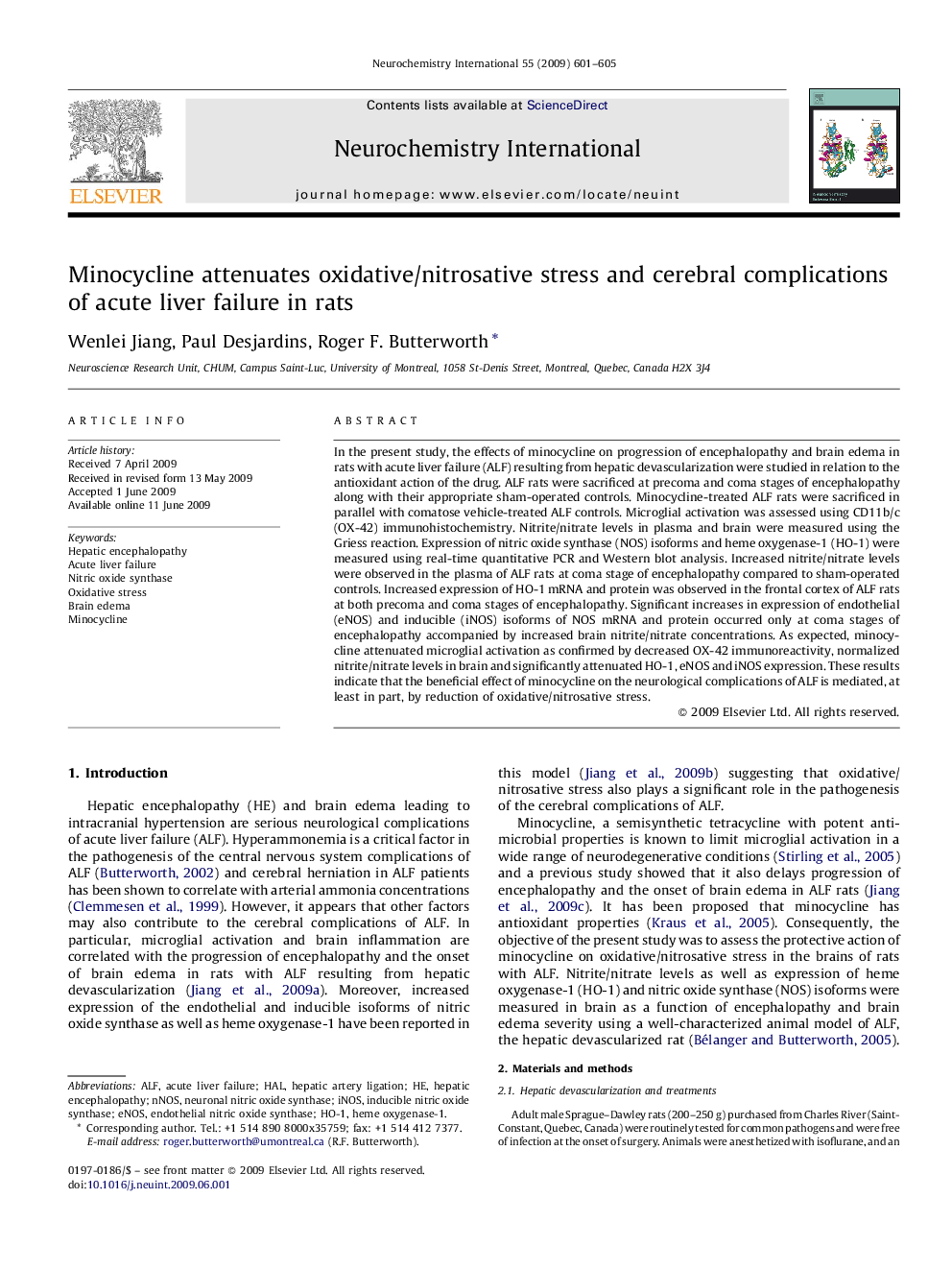| Article ID | Journal | Published Year | Pages | File Type |
|---|---|---|---|---|
| 2201403 | Neurochemistry International | 2009 | 5 Pages |
In the present study, the effects of minocycline on progression of encephalopathy and brain edema in rats with acute liver failure (ALF) resulting from hepatic devascularization were studied in relation to the antioxidant action of the drug. ALF rats were sacrificed at precoma and coma stages of encephalopathy along with their appropriate sham-operated controls. Minocycline-treated ALF rats were sacrificed in parallel with comatose vehicle-treated ALF controls. Microglial activation was assessed using CD11b/c (OX-42) immunohistochemistry. Nitrite/nitrate levels in plasma and brain were measured using the Griess reaction. Expression of nitric oxide synthase (NOS) isoforms and heme oxygenase-1 (HO-1) were measured using real-time quantitative PCR and Western blot analysis. Increased nitrite/nitrate levels were observed in the plasma of ALF rats at coma stage of encephalopathy compared to sham-operated controls. Increased expression of HO-1 mRNA and protein was observed in the frontal cortex of ALF rats at both precoma and coma stages of encephalopathy. Significant increases in expression of endothelial (eNOS) and inducible (iNOS) isoforms of NOS mRNA and protein occurred only at coma stages of encephalopathy accompanied by increased brain nitrite/nitrate concentrations. As expected, minocycline attenuated microglial activation as confirmed by decreased OX-42 immunoreactivity, normalized nitrite/nitrate levels in brain and significantly attenuated HO-1, eNOS and iNOS expression. These results indicate that the beneficial effect of minocycline on the neurological complications of ALF is mediated, at least in part, by reduction of oxidative/nitrosative stress.
